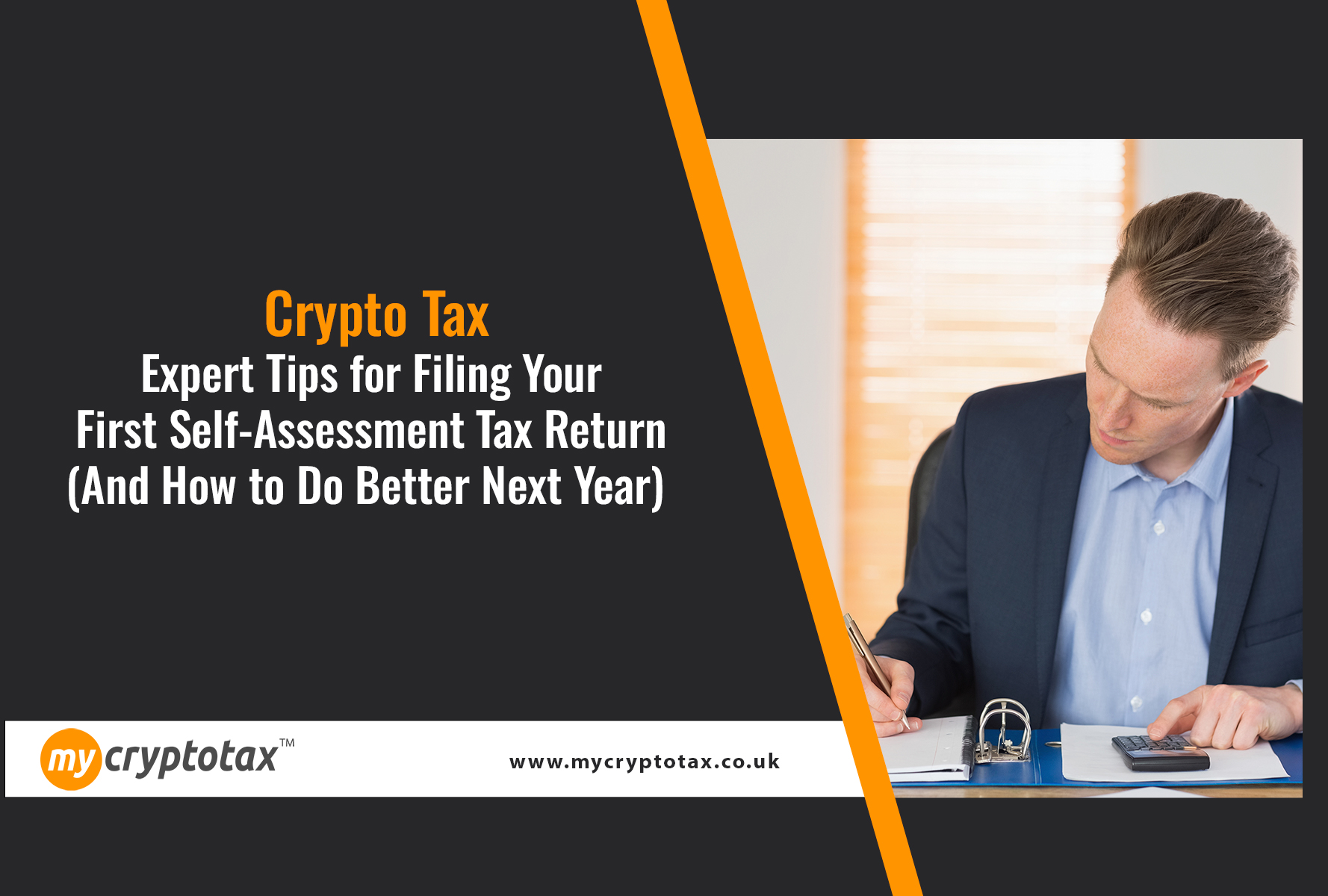Crypto Tax: Expert Tips for Filing Your First Self-Assessment Tax Return (And How to Do Better Next Year)

Cryptocurrency has revolutionized finance, but with great gains comes the responsibility of paying taxes. If this is your first time filing a self-assessment tax return for your crypto investments, you might feel overwhelmed—but don’t worry, we’ve got you covered! Here’s a simple breakdown of crypto taxes, common mistakes to avoid, and expert tips to make the process smoother.
Do You Need to Pay Tax on Crypto?
In the UK, HMRC treats cryptocurrency as property, not currency. This means that depending on how you use your crypto, you could be liable for Capital Gains Tax (CGT) or Income Tax.
Capital Gains Tax (CGT) Applies if You:
- Sell, trade, or gift crypto (excluding gifts to a spouse or charity).
- Make profits above the annual tax-free allowance (£6,000 for 2023/24, dropping to £3,000 from April 2024).
Income Tax applies if you:
- Earn crypto through mining, staking, or as payment for goods/services.
![[Tags] concentrated-businessman-with-beard-reads-report-from-sheets-paper-with-thoughtful-face-sitting-grey-table-1 Crypto Tax: Expert Tips for Filing Your First Self-Assessment Tax Return (And How to Do Better Next Year)](http://mycryptotax.co.uk/wp-content/uploads/2025/03/concentrated-businessman-with-beard-reads-report-from-sheets-paper-with-thoughtful-face-sitting-grey-table-1.jpg)
Key Steps to Filing Your Crypto Tax Return
1. Gather Your Records
You’ll need:
- Dates of transactions
- GBP value at the time of each transaction
- Details of what you bought, sold, or traded
- Wallet addresses and exchange records
Tip: Use crypto tax software (like Koinly , CoinTracker,cryptotaxcalculator ) to automate calculations and track your gains/losses.
2. Calculate Your Gains & Losses
- Determine the difference between the purchase price (cost basis) and the selling price for each transaction.
- Include transaction fees—these reduce your taxable gains.
- If you made a loss, you can offset it against future gains to reduce your tax bill.
3. Report Your Crypto Gains on Your Self-Assessment
- Fill in the Capital Gains Tax section.
- If you received crypto as income, report it in the Income Tax section.
![[Tags] concentrated-businessman-with-beard-reads-report-from-sheets-paper-with-thoughtful-face-sitting-grey-table-1 Crypto Tax: Expert Tips for Filing Your First Self-Assessment Tax Return (And How to Do Better Next Year)](http://mycryptotax.co.uk/wp-content/uploads/2025/03/young-businessman-looking-document-office-1-e1740968825285.jpg)
4. Pay What You Owe
- The tax deadline is January 31st, so pay on time to avoid penalties.
Common Crypto Tax Mistakes to Avoid
- Not Reporting Crypto Transactions – Even if you didn’t convert crypto to GBP, trading one crypto for another (including NFTs) is a taxable event.
- Forgetting About Small Transactions – Every trade counts, no matter how small.
- Ignoring Income Tax – If you earned crypto through mining, staking, or payments, you need to report it as income, not just capital gains.
How to Do Better Next Year
- Keep Impeccable Records – Track every transaction in a spreadsheet or crypto tax software to save yourself stress next tax season.
- Understand Your Tax Obligations – HMRC’s crypto tax rules can be complex. If in doubt, consult a crypto tax specialist.
- Use Tax-Loss Harvesting – If you made losses, use them to offset your gains and lower your tax bill.
- Set Aside Funds for Tax – Since crypto prices are volatile, keep a portion of your gains aside for tax payments.
Need Help with Your Crypto Taxes?
Filing crypto taxes can be confusing, but MyCryptoTax is here to help! Whether you need assistance calculating your gains, filing your tax return, or understanding HMRC’s rules, their expert team is ready to guide you.
Contact MyCryptoTax today at www.mycryptotax.co.uk and get your crypto taxes sorted with confidence!
FAQ’s
What should I do if I receive a nudge letter from HMRC?
If you receive a nudge letter, review your tax filings, gather supporting documents, and seek professional advice. Ignoring it could lead to a formal investigation and potential penalties.
Are profits from meme coins and NFTs taxed differently?
No. Profits from meme coins and NFTs are generally subject to the same tax rules as other cryptocurrencies, with capital gains tax applied upon disposal.
![[Tags] concentrated-businessman-with-beard-reads-report-from-sheets-paper-with-thoughtful-face-sitting-grey-table-1 Crypto Tax: Expert Tips for Filing Your First Self-Assessment Tax Return (And How to Do Better Next Year)](http://mycryptotax.co.uk/wp-content/uploads/2023/12/1-edited.png)
DISCLAIMER
© My Accountancy Team 2025 All Rights Reserved – The above articles are provided for guidance only and may not cover your personal circumstances so you should not rely on them. It is important that you seek appropriate professional advice which takes into account your personal circumstances where you can provide the full facts of the case and all documents related to your case. My Accountancy Team Ltd t/a mycryptotax.co.uk, cannot be held responsible for the consequences of any action or the consequences of deciding not to act.
![[Tags] concentrated-businessman-with-beard-reads-report-from-sheets-paper-with-thoughtful-face-sitting-grey-table-1 Crypto Tax: Expert Tips for Filing Your First Self-Assessment Tax Return (And How to Do Better Next Year)](http://mycryptotax.co.uk/wp-content/uploads/2023/12/2-1-1024x390.jpg)
Do you have a question for our experts?
If there’s cryptocurrency tax issue that has you puzzled or worried, get in touch. Everyone on our team loves to talk, especially when it helps people like you find peace of mind.
Schedule a free consultation with one of our Crypto Tax Experts and get your questions answered fast!
